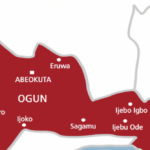Dr Taofeekat Ali is the programme manager, tuberculosis, of the Institute of Human Virology, Nigeria (IHVN).
She also oversees the implementation of the Global Fund Public-Private Mix (GF-PPM) project grant across 21 states.
In this interview, she explains the benefits of engaging the private sector in the TB response, and how Nigerians can prevent TB among others.
Can you briefly tell us about IHVN activities towards preventing TB in some parts of the country and what informed the choice of such areas?
The institute has worked extensively in the public health space for over fourteen years.
Therefore, our experience; working with the National TB programme over the years puts us in a good position to tackle the challenges of the disease in the country.
The major TB challenge in the country is low case finding. So right now, IHVN is the principal recipient for the Public-Private Mix grant in Nigeria funded by the Global Fund. That means IHVN has the responsibility of expanding TB services to the private sector, and we started that in 2019.
We are in the third year of that grant and working in 21 states across five geopolitical zones.
The choice of the states was based on a number of factors and it was arrived at in conjunction with stakeholders in the country including the National TB and Leprosy Control Programme, and the Country Coordinating Mechanism for the Global Fund.
Basically, we looked at where we have the highest number of missing TB cases, and where we are likely to find a number of people with TB that have not been diagnosed so that we can properly identify, diagnose and treat them.
Can you tell us how you have been engaging the private sector for TB interventions?
When we say the private sector, we mean anyone who provides some form of healthcare delivery at any level for individuals who visit them, and are not under the government funding.
So we work with regular hospitals and clinics, and those in the community that may not be called doctors or nurses such as patent medicine vendors.
We also work with community pharmacists, faith-based facilities, private-for-profit clinics, hospitals and even traditional birth attendants. These are people who provide some form of health services to the populace.
We now have 471 faith-based facilities that have been engaged as at the end of the second quarter of 2021. For private-for-profit, we have over 2,677 health facilities across 21 states. We have also engaged more than 16,000 community pharmacies and patent medicine vendors, and over 143 laboratories.
How many people have been diagnosed so far in your target areas?
When we started in the first quarter of 2019, the total number of cases that were notified in the private sector was about 11-12 percent of the total notification and that came to about 14,000.
Currently, we have more than doubled that. At the end of the second quarter of 2021, private sector contributions in Nigeria amounted to 29 percent of the total notification. But when we look at the 21 states where IHVN provides support for private sector engagement under the Global Fund grant, we are contributing 36 percent; that is over 11,838 cases.
So for the 21 states, we have moved from 2,500 as at the beginning of 2019, to now over 11,838 cases.
What is the significance of this project in the fight against TB in the country?
When we profile our situation, we see that the private sector came top on the list as the place to go to find missing cases because we know that one in two or three persons who are ill will first go to the private provider to get treatment for any ailment.
I would say that the importance of IHVN’s work in finding the TB cases in the private sector and even in the public sector where the TB LON programme runs has added tremendously in finding TB cases, in creating awareness, and in placing people on treatment. Let me also add that apart from the private sector engagement, there is so much more that IHVN is doing in terms of diagnostic support for TB programmes in Nigeria.
IHVN supports the entire country for the diagnostic network for TB by which I am referring to the Gene Xpert diagnostic system, which is the first diagnostic tool for TB case-finding in Nigeria. IHVN supports the national programme to ensure adequate, equitable access to the Gene Xpert system, ensure that there is maintenance support for those systems, prompt solution to challenges and adequate support for sample transfers from the point where patients visit healthcare providers in the private sector to the diagnostic centres.
What is your advice to Nigerians on preventing TB?
Globally, we are all learning a lot of lessons through the COVID-19 pandemic and because of the similarities between TB and COVID, I would say that we should maintain good cough etiquette in preventing TB.
This also applies to COVID-19, along with the use of face masks. When you cough, avoid coughing into the open air, cough into your elbow, into a handkerchief, or a disposable tissue that you can throw away.
We must also ensure good airflow wherever we are; whether in our offices or homes, to avoid overcrowding. Because when you have too many people in a small space, and there isn’t good airflow, then you are likely to increase the risk of transmitting TB if there is a person with TB in that environment.
Also ensure good environmental and personal hygiene.
We should also support anyone who has TB because we have realised that people who have tuberculosis face stigma even in the facility, and even among healthcare workers.
We know that TB is curable; the most important step with finding a cure is to find that person with TB. Once you are able to find the TB patient and you put them on treatment, then transmission is curtailed to the barest minimum. Let us all support the national TB programme and its partners to find TB, treat TB and eliminate TB in Nigeria.




